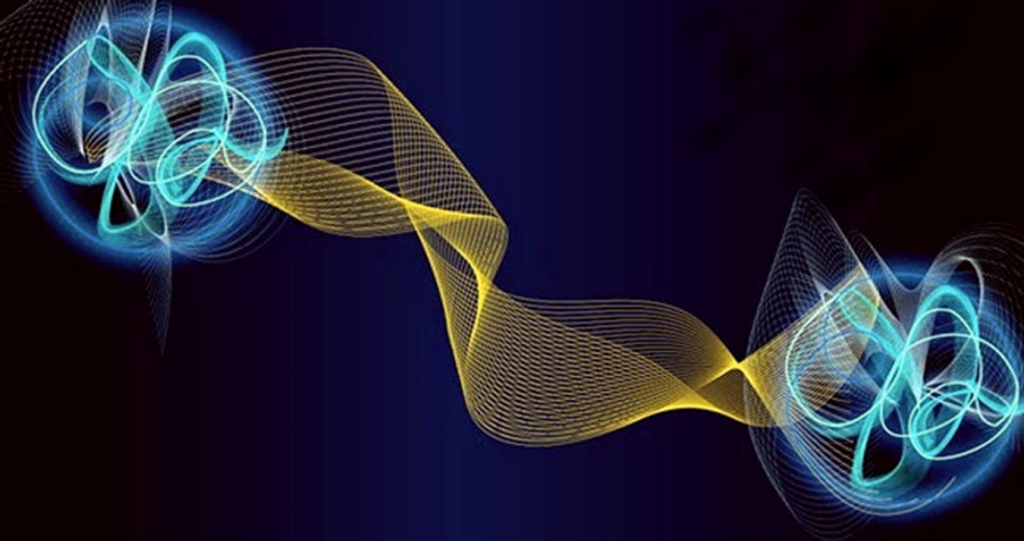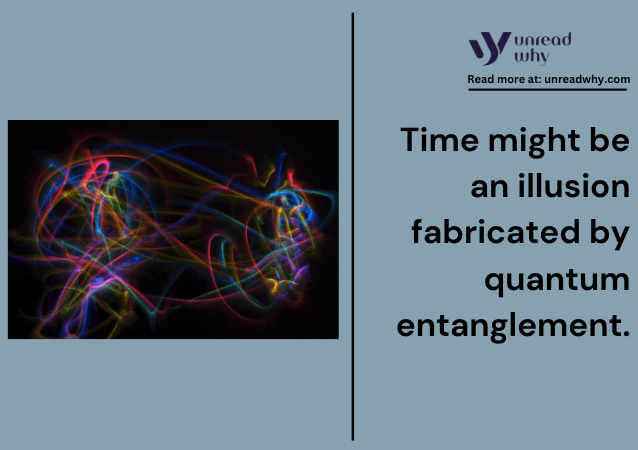Spooky action at a distance
One of the anomalous facets of quantum physics is entanglement, which is also called Spooky action at a distance. The subject of “quantum entanglement” is at the core of inequality between quantum and classical physics as these phenomena of quantum particles are described by quantum mechanics, which is not described via classical mechanics.
Deep down into the nation of quantum entanglement, which indicates that in the vast cosmic arena, the bond between the two subatomic particles remains endured, and any change between one will affect the spin of the other. Across the globe, many quantum physicists are trying to figure out this complex phenomenon in physics, but even today, the weird nature of entangled subatomic particles and the invisible bond between them, despite the vast distance in the universe, is still unknown.

Erwin Schrodinger’s view towards quantum entanglement
Well-known physicist Erwin Schrodinger, through his research paper describing the idea of entanglement, also acknowledged the eminence of this concept, which indicates the characteristic attribute of quantum mechanics. From the paradoxical view, quantum theory is inadequate until or unless the result of measurements relies upon predominantly hidden variables. Moreover, the state of two subatomic particles being evaluated encompasses some hidden variables whose values define the right from the instant of separation what the result of the spin would be after that.
Therefore, each subatomic particle holds the required information, and nothing is required to be transmitted from one particle to another particle during the time of measurement. It is worth mentioning that Einstein and other renowned physicists agreed that quantum mechanical description might be incomplete, which forces quantum physicists to disclose the hidden mystery behind quantum entanglement and how time might be an illusion created by the “Spooky action at a distance”.
Definition of time according to quantum mechanics
For extremely small intervals, general relativity is irrelevant to discourse on the nature of time and therefore, quantum mechanics have taken its place. In quantum mechanics, the definition of time is vastly different from general relativity’s concept of independent clocks since quantum mechanics describes time as an absolute parameter. The unification of these two theories is widely recognized as a problem of time, and as of now, there is no generally accepted theory regarding quantum general relativity, which causes issues for scientists to effectively understand the aspect which is known as the quantum arrow of time.
Quantum Arrow of Time
The quantum arrow of time derives from the thermodynamic arrow of time, which indicates that the interaction between two bigger systems and relative phases are at first order associated. However, consequent interactions make them decoherent. This further increases entropy, and hence, two decoherent systems might not interact through “quantum superposition” unless they become coherent, which is not appropriate according to the second law of thermodynamics. As per the relational quantum mechanics, when observers try to measure this phenomenon, they become entangled with respect to the measured state where entanglement fuelled entropy.
Could time be an illusion fabricated by the phenomena called “Quantum Entanglement”?
Many quantum physicists struggled to figure out the nature of time; however, a new study shows that time might be an illusion interlaced with the quantum realm. Additionally, time might not be a fundamental of the universe, but it may be an illusion that emerged from quantum entanglement. According to the new study, spooky action at a distance (Quantum Entanglement) may provide a different outlook regarding one of the fundamental physical quantities, which is widely known as time. How this research will possibly establish an association between quantum entanglement and time has yet to be discovered.


